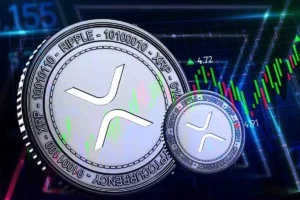Ripple vs. SEC Lawsuit: Latest Developments in the XRP Legal Battle
In a significant update regarding the prolonged legal confrontation between Ripple Labs and the U.S. Securities and Exchange Commission (SEC), the U.S. Court of Appeals has approved a joint request from both parties to temporarily suspend their appeals. This decision paves the way for Ripple and the SEC to finalize their settlement in what has become a landmark case in the realm of cryptocurrency regulation. The suspension of these appeals signifies that both parties are committed to settling their differences amicably, avoiding the lengthy judicial processes inherent in further litigation.
Details of the Court Order
The recent court ruling indicates that the appeals process will be paused, as reflected in a court document where the appeals court directed the SEC to file a status report in 60 days. This stay on the appeals will provide Ripple and the SEC the time necessary to negotiate a resolution effectively. For instance, in March, Ripple had previously agreed to abandon its cross-appeal following the SEC’s decision to withdraw its appeal against Ripple’s legal position. Such strategic moves illustrate the shifting dynamics of the legal battle, hinting at a possible consensus between Ripple and the SEC.
Resource Conservation and Judicial Efficiency
Both Ripple and the SEC cited a mutual interest in conserving judicial resources while they navigate negotiations for a settlement. The agreement highlights the practical considerations in legal disputes, particularly the financial and temporal costs associated with continuing a protracted legal battle in court. By temporarily halting their appeals, both parties aim to focus on achieving a negotiated resolution rather than extending the litigation indefinitely, which could burden the court system and exhaust additional resources.
Remaining Steps for Settlement Finalization
While significant progress has been made, there are still hurdles to clear before a final settlement can be achieved. Ripple and the SEC’s preliminary agreement necessitates a few additional layers of approval, most importantly from the SEC itself. Both parties need time to secure the Commission’s consent for their “agreement-in-principle,” which indicates that while they are on the right track, the matter is not yet resolved. Additionally, it is anticipated that they will need a favorable ruling from Judge Analisa Torres of the District Court, who previously awarded Ripple a substantial penalty. In their agreement, Ripple is expected to pay only $50 million of the $125 million penalty originally imposed.
Potential Delays and Future Implications
Despite apparent progress, the timeline for finalizing the agreement remains uncertain. Speculation suggests that the delay could be linked to the SEC awaiting the appointment of a new chairperson, Paul Atkins, who has recently been confirmed by the U.S. Senate. With the new leadership in place, the Commission may approach the settlement differently, which could influence the resolution dynamics between Ripple and the SEC. Thus, the expectation of a clear outcome relies heavily on the leadership direction provided by the new SEC chair and the approval protocols that follow.
Next Steps and Legal Expert Insights
Once the SEC grants approval, Ripple and the SEC will petition Judge Torres to lift the regulatory injunction imposed earlier. This petition will signal further action needed in the District Court, ultimately setting the stage for final approval of the settlement terms. Legal analysts, including recognized expert Fred Rispoli, have noted that this recent order from the Court of Appeals emphasizes the urgency for swift action in the District Court, suggesting that the next significant movement in this case will likely involve modifications to Judge Torres’ existing order concerning Ripple.
In conclusion, the XRP lawsuit between Ripple and the SEC is at a pivotal junction as both parties appear to be steering towards a potential settlement. This unfolding situation is not just critical for Ripple and the SEC, but also for the broader cryptocurrency landscape, as it will set important precedents for how digital assets are regulated in the United States. As observers keenly monitor developments, the ripple effect (no pun intended) of this case will likely resonate throughout the cryptocurrency community.





